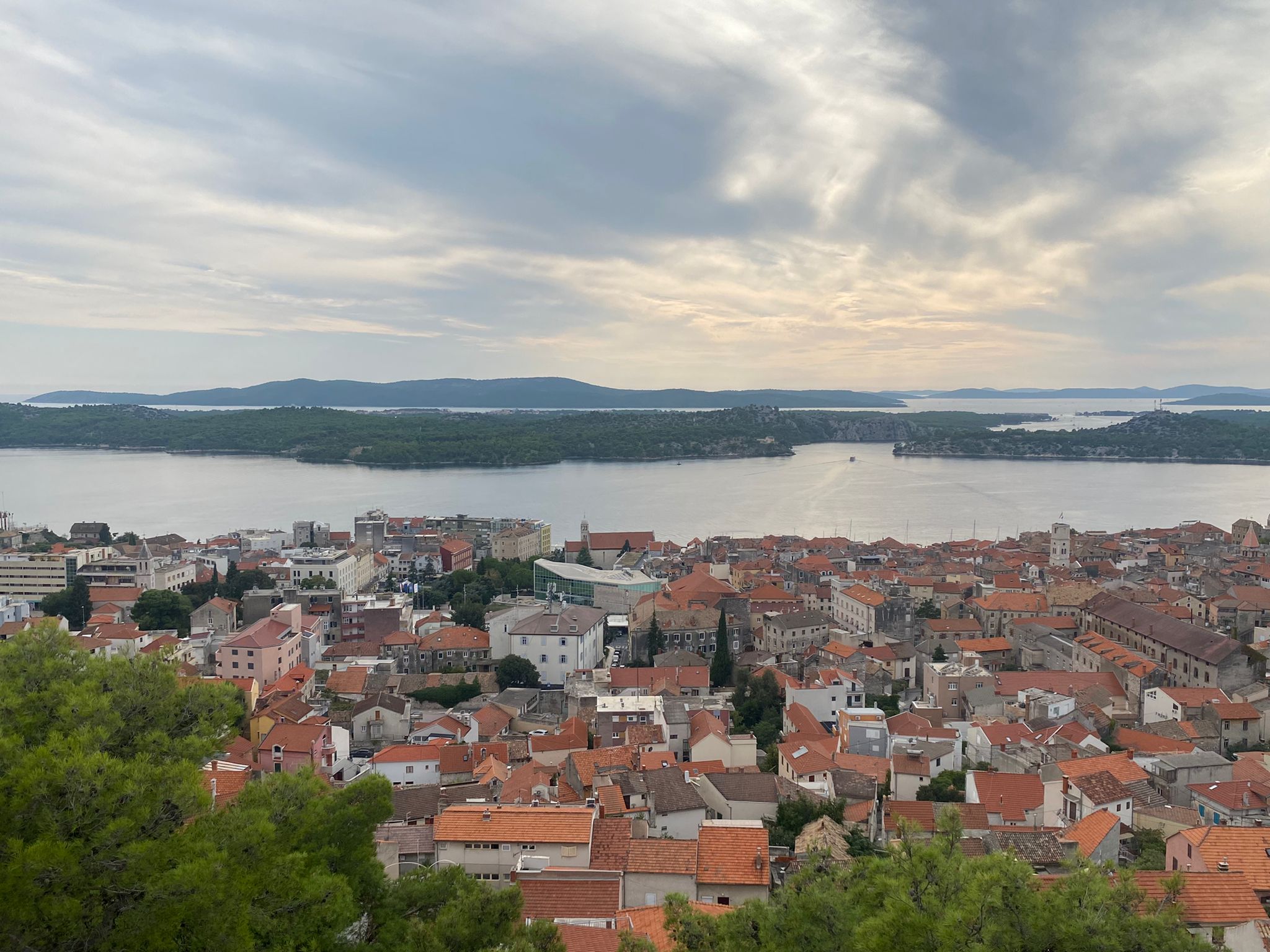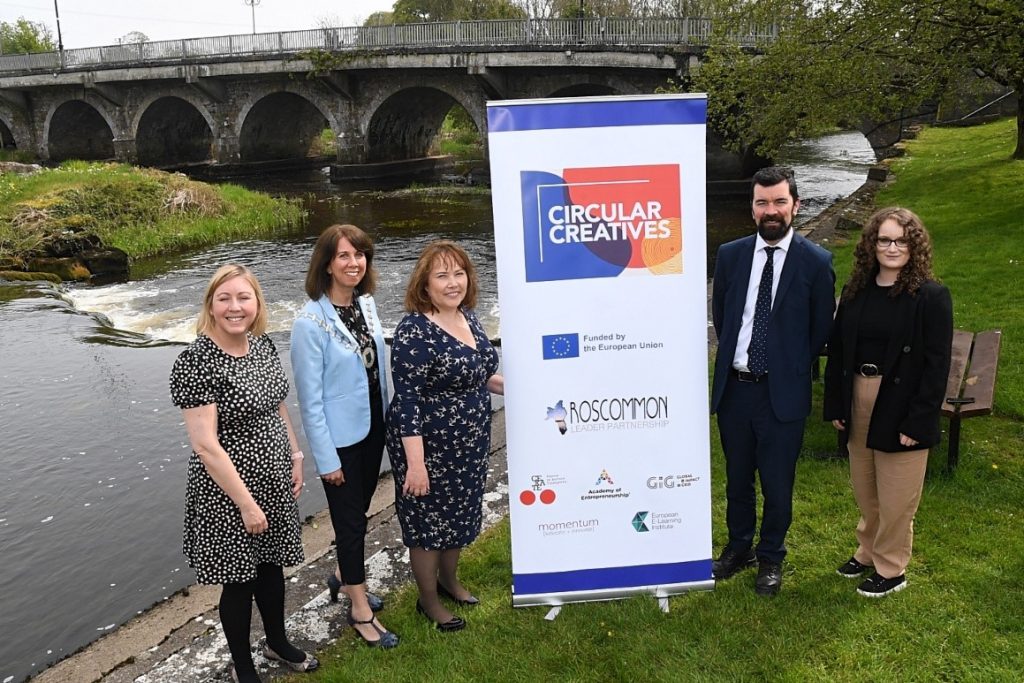
Theatre and film in Wales are embracing the circular economy to reduce environmental impact. Companies are adopting sustainable practices, with the Welsh Government aiming for a zero waste nation by 2050. The film industry, supported by the BFI and BAFTA, is making strides towards sustainability. The theatre sector promotes circular economy principles through sustainable production and venue operations. Reuse of costumes, sets, and props is common, demonstrating a commitment to reducing waste and promoting sustainability. This approach not only benefits the environment but also offers creative solutions for the industry.
To read the full story, visit: https://www.walesartsreview.org/arts-and-the-circular-economy-theatre-film/#google_vignette

The fashion industry stands at a crucial juncture, facing the urgent need to shift from its current, linear model of "take-make-dispose" to a more sustainable, circular approach. This transformation is not just a trend but a necessary evolution towards a more responsible and environmentally friendly industry. Circular fashion represents a comprehensive change, focusing on reducing waste, extending the lifespan of clothing and textiles, and revolutionising the way we view fashion.
The Linear Fashion Model: A Cycle of Waste
Traditionally, the fashion industry has thrived on the mass production and consumption of clothing, largely made from fossil fuel-based synthetics, not designed for reuse or recycling. This model, driven by aggressive marketing and the lure of low prices, encourages a culture of impulsive buying, leading to excessive textile waste. Clothing is often discarded after minimal use, ending up in landfills or being sent to developing countries, causing environmental and social issues.
Circular Fashion: A Vision for the Future
Circular fashion, inspired by the principles of the Circular Economy, aims to create a closed-loop system where waste is minimised and resources are maximised. It's about designing garments that are durable, timeless, and can be easily repaired, reused, or recycled. This approach not only tackles the environmental challenges of waste and pollution but also opens up new opportunities for innovation and sustainable growth within the industry.
Key Principles of Circular Fashion:
Design for Longevity: Creating high-quality, durable garments that encourage longer use and reduce the need for frequent replacements.
Sustainable Materials and Production: Using eco-friendly materials and methods that minimise waste and environmental impact.
Promoting Reuse: Encouraging practices like clothing rental, second-hand sales, and swaps to extend the lifespan of garments.
Facilitating Repair and Recycling: Supporting services that allow clothes to be repaired or recycled, ensuring materials can be used in new products.
The Path to Circularity
Transitioning to a circular fashion model requires collaboration across the industry, from designers and manufacturers to consumers and policymakers. Innovations in textile recycling, the development of bio-based materials, and the adoption of circular business models are critical to achieving this vision. It's about designing products that are not only made to last but also made to be remade, ensuring they can be easily disassembled and recycled at the end of their lifecycle.
Circular fashion offers a hopeful future for the fashion industry, one that aligns with the urgent need for sustainability and responsible consumption. By embracing the principles of circularity, we can reduce waste, mitigate environmental impacts, and create a more ethical and sustainable fashion industry. This journey requires a collective effort and a reimagining of the entire lifecycle of clothing, from design to disposal, highlighting the importance of innovation, education, and consumer awareness in achieving a circular fashion economy.
For more information follow the source: https://www.thesustainablefashionforum.com/pages/what-is-circular-fashion

In October, the picturesque city of Šibenik in Croatia became the focal point for a significant meeting in the progress of our ongoing project. The fourth Transnational Project Meeting (TPM4) was not just another milestone but a pivotal moment where partners engaged deeply on several critical aspects of our collaborative work. The Polytechnic of Šibenik, known for its academic excellence, played the gracious host, facilitating discussions that could very well shape the future trajectory of our project.
Unpacking the Agenda: From User Testing to Sustainability
The agenda for TPM4 was comprehensive, covering a broad spectrum of topics crucial for the project's success. High on the list was the discussion around user testing of PR3 and PR4. This phase is crucial as it allows us to gauge the effectiveness of our strategies and make necessary adjustments based on real-world feedback. The aim is to ensure that the project outcomes are not only theoretically sound but also practically viable and beneficial for our target audience.
Equally important was the conversation around finalising the project results. As we move closer to the culmination of our efforts, it's imperative to ensure that the outcomes we present are refined, impactful, and aligned with our initial objectives. This discussion was an opportunity for all partners to share their insights, address any lingering challenges, and chart a path forward to ensure the project's success.
Sustainability of resources was another critical topic. In an era where resource conservation and sustainable practices are more important than ever, our project aims to embody these principles. The discussions revolved around how we can sustain the momentum generated by our project and ensure that the resources we've developed continue to benefit our target groups in the long run.
Dissemination: Sharing Our Journey and Outcomes
A key aspect of TPM4 was focused on the dissemination of results. This is where our work moves beyond the confines of our project team and reaches a broader audience. We delved into strategies for effectively sharing the knowledge and insights gained through our project, exploring various channels and methods to maximize our impact. It's about creating ripples that extend far beyond the immediate scope of our work, inspiring others and contributing to a broader conversation around our project themes.
Experiencing Šibenik: Beyond the Meeting Room
One of the highlights of TPM4 was undoubtedly the tour of Šibenik, courtesy of our hosts at the Polytechnic of Šibenik. It's a city that marries historical charm with natural beauty, and for many of us, it was an opportunity to connect with the local culture and heritage. These moments of informal interaction and exploration are invaluable. They not only provide a refreshing break from the intensity of our discussions but also foster stronger bonds among project partners. It's in these relaxed settings that some of the most spontaneous and creative ideas come to life.
Looking Ahead
As we reflect on the outcomes of TPM4 and look ahead to the next steps, there's a sense of accomplishment and anticipation. We are now better equipped to tackle the challenges that lie ahead, thanks to the robust discussions, the feedback from user testing, and the strategic planning that took place in Šibenik. The road ahead is promising, and with the collective expertise and commitment of all partners, we are poised to make a lasting impact.
Šibenik, with its historic streets and welcoming atmosphere, was more than just a meeting venue—it was a reminder of the beauty of collaboration, the importance of our mission, and the potential for positive change when diverse minds come together. As we move forward, the memories of TPM4 and the lessons learned in Šibenik will undoubtedly continue to inspire and guide us.
The Academy of Entrepreneurship (AKEP) is a non-governmental, non-profit organization, with an innovative and authentic character, trying to meet the new challenges of the modern labour market as its first priority. It has been founded in 2007 by the historical Educational Association of Athens ‘HFAISTOS’.
Its aim is to create a healthier entrepreneurial environment on a national and European level and to support young people who wish to make their innovative and social entrepreneurial ideas come true. AKEP's main objective is the cultivation of the essential entrepreneurial attitude and transfer of the necessary knowledge to public and private organisations related to youth and social entrepreneurship.
For that reason, AKEP has been one of the Intermediary organisations in Greece for the Erasmus for Young Entrepreneurs programme since 2012. This is a cross border exchange programme which gives new or aspiring social entrepreneurs the chance to learn from experienced ones running small businesses in other Participating Countries, since 2009. AKEP's role is to facilitate Greek social entrepreneurs’ non-formal entrepreneurial learning experience throughout Europe and to connect experienced host entrepreneurs with new or aspiring entrepreneurs.
AKEP is a social entrepreneurship ecosystem accelerator as it cultivates entrepreneurship and employability soft and technical skills, with a focus on non-formal learning of entrepreneurial skills for public and private organisations and anyone involved in them (trainers of entrepreneurs). AKEP's vision is to accomplish the Global Sustainable Goals until 2030 in the best way possible through the cultivation of an entrepreneurial mindset in private and public organisations in Europe.
AKEP has been the national partner of the Global Entrepreneurship Week (GEW) in Greece since 2008. AKEP is also a member of the Global Entrepreneurship Research Network, the Entrepreneur Envoy network, the European Association of Development Research and Training and the Euclid Network.
AKEP has been nominated as the official National partner in Greece for the Startup Nations Global Network and constitutes an important communication channel for startup entrepreneurs and policymakers both on a European and global level.
AKEP is participating in various European research projects that support entrepreneurship development and employability, especially regarding youth. The research and social innovation department can strongly support the activities of any project related to business, youth entrepreneurship, the labour market, and employment. AKEP’s network also involves Higher Education Institutions and Research centers.
Roscommon LEADER Partnership were very lucky to have Minister Joe O'Brien TD for Dublin Fingal to officially launch the Empowering Creative Circular Entrepreneurs and Climate Champions project in beautiful Castlecoote Village in Co Roscommon earlier this year.

This project brings circular economy principles to business start-ups, established businesses and social enterprises in the county and in the EU.
We also had a speech from our European Projects Officer Sharon to talk about the work we are doing with our partners across Europe to further enhance people skills and knowledge in multiple areas.
Some of the key objectives of this project are:
To understand the strengths and weaknesses of the creative industry through exploratory panels with a focus on circular economy for job potential and business impact.
Upskill the Vocational Education Training (VET) Community to train entrepreneurs how to use circular practices in their own businesses.
To build and maintain connections between entrepreneurs, educators and unemployed creatives by sharing opportunities, skills and training using an online platform.
Creating a workshop guide to allow entrepreneurs to implement circular models to help them promote their business to consumers and wider networks.

This is an Erasmus+ Funded Project